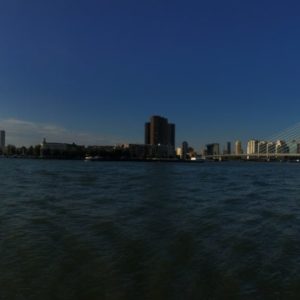-
Nitrogen permits holding up green investment in Port of Rotterdam
Date posted:
-
-
-
Post Author
Patrick LaveryCombustion Industry News Editor
-
-

A report in the Financial Times has drawn attention to how restrictions on nitrogen emissions during construction works are delaying €10 billion of green technology projects at the port of Rotterdam in the Netherlands.
A ruling upheld by the Dutch supreme court in 2019 forces the Netherlands to reduce emissions of nitrogen containing compounds (such as ammonia) in vulnerable natural areas so as to limit eutrophication type issues (particularly in aquatic environments). While the Dutch government had planned to reduce such emissions by curbing those released from farming, protests against such curbs contributed to the recent collapse of the Dutch government, and are a highly contested issue politically.
The failure to limit emissions of nitrogen containing compounds by other means has meant that there is a lesser ability to emit them during construction processes. According to Allard Castelein, the outgoing chief executive of the Port of Rotterdam, this has put “at risk” large green technology projects including a €1 billion hydrogen production plant planned by Shell and a €1.9 billion biofuels project by Neste. Mr Castelein pointed out that “all these manufacturing sites need to be up and running in the next few years. There is a 2030 climate target. We have no time to lose. We need a long-term solution.”
That differing environmental objectives can be in competition is nothing new, but a means to resolve the present problem appears to be a particularly important need. While the Port of Rotterdam has been freeing up some nitrogen permits by providing renewable electrical hubs to power docked ships, so that they do not need to run their engines, such measures are not adequate.
